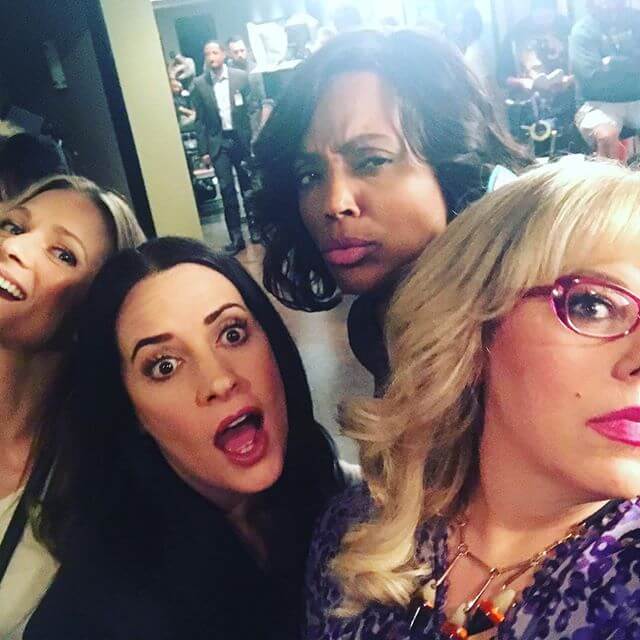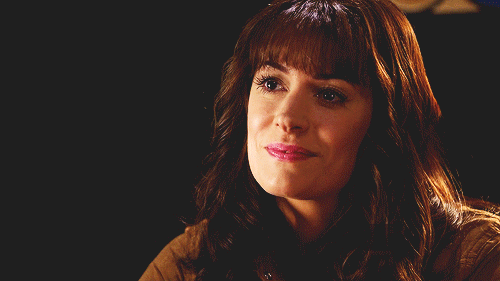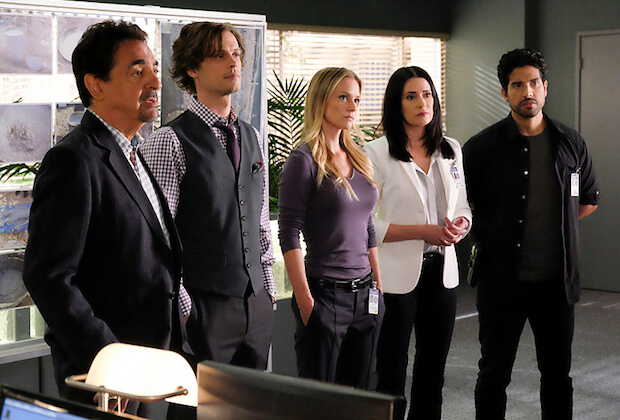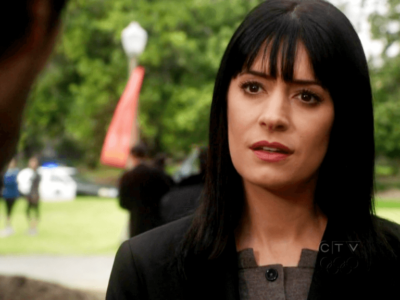Dear Paget Brewster,
I’m writing to say thank you for being a badass. Thank you for teaching me how to master a no-bullshit stare-down and how to perfect the sleek ponytail look. But more than anything, I want to thank you for portraying Supervisory Special Agent Emily Prentiss on Criminal Minds. She—and you by extension—shaped so much of who I am and aspire to be.
Like a lot of introverted, borderline reclusive young teens, I spent a long time watching television. My genre of choice? Crime dramas. I’m sure a child psychologist would have oodles to say about that, so let’s just be thankful my parents never called one.
Crime dramas carry a certain theme I’m sure we’re all aware of, and that includes women as victims. Episode after episode, story lines revolve around battered, sexually abused and viciously murdered women. And I get it. Few things terrify us more than reality. And unfortunately—and as f—ed up as it might sound—everyday women experience horrors most of us couldn’t imagine if they hadn’t happened to our friends, family and often ourselves.
But that reality takes a toll. Especially at 14.
Don’t get me wrong, I’ve learned plenty of life skills from these shows. Like if your gut tells you the nice man offering you a ride home secretly lives life as a serial killer who wears his victims’ skin, shank him with your house keys and run as though only one Ben & Jerry’s Phish Food remains in a sea of Cherry Garcia. Okay, maybe don’t go that far. But definitely listen to your gut and don’t get into his van with tinted windows and no passenger lock controls.

In my mind, the women of Criminal Minds kick ass by offering different representations of badass women. As Fordham University Communication and Media Studies professor Jennifer Clark noted, this representation makes a world of difference for impressionable young girls. “One of the fundamental concepts in film and television studies, in feminist studies, is that representation matters quite deeply. So to see more and different types of gender can only help young women and girls see the world, other people, and themselves in different ways,” said Clark. “Images are opportunities.”
Everyone can find a piece of themselves within JJ, Garcia and Prentiss. I certainly did.
JJ’s f–ck-with-me-and-I’ll-kick-your-ass-and-still-be-home-in-time-to-tuck-my-kids-in-bed attitude taught me to never let a man’s perception of your beauty and perceived abilities hinder anything you do. I try to channel her equal parts composure and indignation every time a male customer calls me “honey” or “sweetheart” at work.
Garcia’s undying eccentricity and optimism in the face of unbelievable tragedy taught me to never let the world strip you of your individuality. She keeps her desk peppered with fuzzy pens, flowers, dinosaur figurines and a lava lamp to remind herself to not lose herself with darkness. I adopted this technique to keep the waves of stress and bouts of depression at bay when the world seems to cave in over me.
And Prentiss? Well something about Prentiss registered with me on a whole other level. And I think it has to do with the fact that I didn’t like her at first.
Whoa, I know, plot twist.

Television shows often introduce a female character for the sole purpose of turning her into a male character’s love interest. Her character lacks individuality beyond throwaway characteristics that allow male characters to raise an intrigued eyebrow, labelling her as “feisty.” She’s only in camera shots that highlight her ass in jeans impractically tight for anyone who wants to move. Said female character usually ends up dying or being a huge witch with a B.
When Prentiss first walked into Hotch’s office wide-eyed and smiling, I thought, “Well, f–k, here we go. Now she and Hotch will start something up and my beautiful TV show (filled with unbelievable violence) will be tarnished by an unnecessary love triangle.”
I kept this mindset until the beginning of season three. I held this ridiculous notion that Prentiss needed to earn her spot (both on the show and in my good graces). Irrational, I know, and definitely backed by a whole lot of pent up internalized misogyny.
Oftentimes, we see men and women held to different standards. Whether in the form of voicing opinions in office meetings or facing global scrutiny for every move they make (honestly, can we please let T-Swift and Kim K live?), women constantly need to go above and beyond to prove themselves where their male counterparts glide by with ease.
It would be more black and white if this scrutiny only came from men, but I’m living proof it doesn’t. I like to think I’ve grown out of this, and Prentiss was the reason. She refused to back down no matter how grisly cases turned. She looked vicious murderers in the eye and verbally tore them to shreds, all while keeping her good humor right under the surface. When a young girl went missing in a mall, Prentiss didn’t remain on the sidelines, following her team’s lead. Instead, she relentlessly gave the kidnapper hell and brought the girl home.
She didn’t become the blanket, uninteresting love interest I expected her to become. On the contrary, she developed into someone strong-willed, opinionated yet open-minded and most importantly, flawed. The only thing worse than making a female character purely eye-candy? Making her infallible. Well, it may not be worse, but it’s not much better.
The solution to better representation requires more than merely flipping the patriarchal structure that created this misguided characterization on its head. As Clark explained, that can be counterproductive. “Men, as a socio-political group, still benefit from occupational status, economic equity and pay rates, and general safety in ways that women do not. So to present men as helpless or as childlike figures means that we cloud the real-world issues of power and that we somehow excuse men from responsibilities of equitable partnerships with women, personally and professionally (and obscure their privilege),” said Clark.

Criminal Minds didn’t do that. Their female and male characters respect and judge each other on the basis of their merit. No one questioned JJ when she transitioned from communications liaison to profiler. If anything, her status as a woman and mother provided her with a unique perspective valued by the rest of the team. Yet at the same time, they acknowledge the challenges they face due to their gender or race.
Young, impressionable me watched Prentiss become unapologetically herself. She became someone both strong yet cautious, who cared about her friends deeply. Someone who didn’t feel a pressing need to have a family (especially when you own a pet cat). She became someone who showed a young girl that there’s more than just one way to “be.”
So thank you very much, Ms. Brewster/Paget/P-Brew.
Best,
An appreciative (if somewhat manic) fan
P.S. Sorry for hating you on Friends.
P.P.S. Thank you for bringing back Emily Prentiss.



















